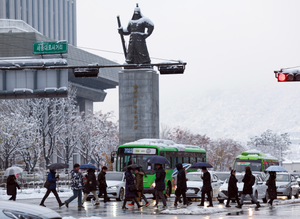South Korea's living costs significantly above OECD average
By IANS | Updated: June 18, 2025 18:48 IST2025-06-18T18:42:22+5:302025-06-18T18:48:45+5:30
Seoul, June 18 Essential living costs in South Korea are significantly higher than those in other major nations, ...

South Korea's living costs significantly above OECD average
Seoul, June 18 Essential living costs in South Korea are significantly higher than those in other major nations, hindering the recovery of consumer spending, the central bank said on Wednesday.
South Korea's price indices for food, clothing and housing stood at 151, 161 and 123, respectively, based on the average price level of Organization for Economic Cooperation and Development (OECD) member countries set at 100, according to a report from the Bank of Korea (BOK), reports Yonhap news agency.
The BOK also cited 2023 data from the Britain-based economic analysis firm Economist Intelligence Unit (EIU), which showed that prices for fruits, vegetables and meat in South Korea were more than 1.5 times higher than the OECD average.
The cumulative increase in the prices of essential items from January 2021 through May 2025 stood at 19.1 percent, which is 3.2 percentage points higher than the country's overall consumer price increase at 15.9 percent.
This growth was driven by high inflationary pressures during the COVID-19 pandemic, supply chain disruptions, the Russia-Ukraine war and adverse weather conditions, among other factors, which contributed to significant rises in food and energy prices.
More recently, rising import costs for raw materials and a weaker Korean won have also been reflected in the prices of processed foods, the BOK said.
"If rising living costs continue to increase households' perceived inflation levels, it could affect their inflation expectations and undermine price stability over a longer-term perspective," the report stated.
"It is crucial to ease regulations and reduce market entry barriers to foster competition among companies, as well as to diversify import sources of raw materials to mitigate the spillover effects of price shocks from specific items to others," it added.
The BOK expected consumer prices and core inflation rates to stabilize in the 1 percent range during the second half of this year, but it highlighted uncertainties related to the United States' tariff policies and rising global oil prices amid geopolitical tensions in the Middle East.
The central bank forecast consumer prices to increase by 1.9 percent this year and 1.8 percent in 2026.
Disclaimer: This post has been auto-published from an agency feed without any modifications to the text and has not been reviewed by an editor
Open in app